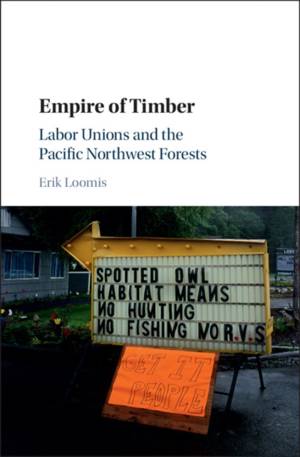
- Afhalen na 1 uur in een winkel met voorraad
- Gratis thuislevering in België vanaf € 30
- Ruim aanbod met 7 miljoen producten
- Afhalen na 1 uur in een winkel met voorraad
- Gratis thuislevering in België vanaf € 30
- Ruim aanbod met 7 miljoen producten
Zoeken
€ 187,45
+ 374 punten
Uitvoering
Omschrijving
The battles to protect ancient forests and spotted owls in the Northwest splashed across the evening news in the 1980s and early 1990s. Empire of Timber re-examines this history to demonstrate that workers used their unions to fight for a healthy workplace environment and sustainable logging practices that would allow themselves and future generations the chance to both work and play in the forests. Examining labor organizations from the Industrial Workers of the World in the 1910s to unions in the 1980s, Empire of Timber shows that conventional narratives of workers opposing environmental protection are far too simplistic and often ignore the long histories of natural resource industry workers attempting to protect their health and their futures from the impact of industrial logging. Today, when workers fear that environmental restrictions threaten their jobs, learning the history of alliances between unions and environmentalists can build those conversations in the present.
Specificaties
Betrokkenen
- Auteur(s):
- Uitgeverij:
Inhoud
- Aantal bladzijden:
- 247
- Taal:
- Engels
- Reeks:
Eigenschappen
- Productcode (EAN):
- 9781107125490
- Verschijningsdatum:
- 23/09/2015
- Uitvoering:
- Hardcover
- Formaat:
- Genaaid
- Afmetingen:
- 158 mm x 238 mm
- Gewicht:
- 494 g

Alleen bij Standaard Boekhandel
+ 374 punten op je klantenkaart van Standaard Boekhandel
Beoordelingen
We publiceren alleen reviews die voldoen aan de voorwaarden voor reviews. Bekijk onze voorwaarden voor reviews.











